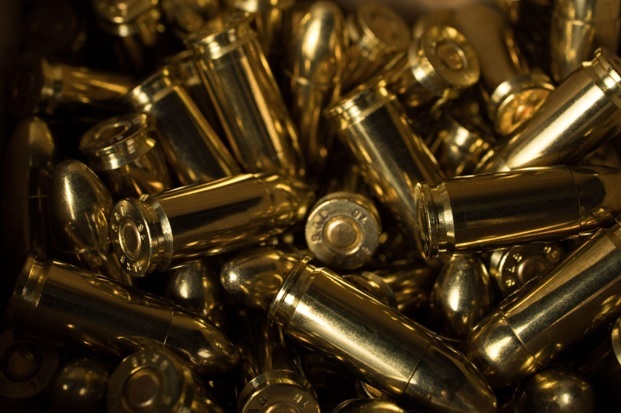Glock pistols are simple machines that are renowned for their intuitive controls and reliability.
But, like any handgun, the slightest things can throw a wrench in the whole system, compromising that reliability.
A dirty chamber, a fatigued Glock mag spring, a broken extractor - all of these things and more can cause jams.
Here’s how to recognize some of the more common types, and what the causes are, or at least might be.
Stovepipe Jam (Pictured at Top of Article)
A stovepipe jam is one of the most common types of a handgun jam. Usually, a stovepipe jam is caused when the shooter “limp wrists” the gun - meaning he or she is not gripping it firmly enough.
In a stovepipe jam, usually the empty casing will be wedged inside the open action, sticking up so that it resembles a stovepipe - hence the name.
Since Glock handguns are recoil-operated, the gun must be held steady so the force of recoil can work against the mass of the shooter to extract and eject the cartridge.
When you “limp wrist” the action can only extract the spent casing part of the way before the slide slams closed on it again.
While limp wristing is the most common cause of stovepipe jams, they can also be caused by issues with the ejector or extractor.
Another issue here could also be the recoil spring. If it is starting to fatigue, it may not be operating as it should be. Your Glock’s recoil springs should last between 3000 and 10000 rounds. If you’re on the upper end of this, it might be time to replace the recoil spring.
Failure to Feed
A failure to feed occurs when the slide does not fully return to battery after extracting and ejecting the last round. The slide may remain nearly fully open, or it may close part of the way on the next round, stripping it part of the way out of the mag towards the chamber.
Failure to feed can be caused by limp wristing, but there are many other mechanical concerns that can cause it.
For one, if you are shooting hollow points and they are getting stuck on the mag’s feed lips, the feed ramp, or even the edge of the chamber, that could be causing a failure to feed. Making sure the Glock mag is seated properly can solve this. You can also have a gunsmith polish your feed ramp and chamber.
Fatigued recoil springs can also cause this issue, as when the spring starts to fatigue, at a certain point, it won’t be able to return enough power to strip the next round out of the mag, chamber it, and return to battery.
If the Glock mag is not seated properly, or the mag spring has started to fatigue, these can also cause failures to feed. The first case is easy to remedy; drop the mag, clear the Glock, and recharge the mag.
The second case will require a little experimentation. As the Glock mag spring fatigues, if it isn’t pushing up adequately on the rounds above it, the slide may not be able to strip and feed the next round.
Failure to Extract
Lastly we have failure to extract, which occurs when the action fails to withdraw the spent casing from the chamber.
Sometimes what happens is the spent case remains in the chamber and the slide slams a new cartridge forward into the rear of it, jamming the gun.
Like the other jams mentioned here, a failure to extract can be caused by limp wristing, so clear the Glock, establish a good grip, and try again.
If your extractor or the spring is missing, broken, or otherwise damaged, that will of course cause a failure to extract.
However, failure to extract may also be caused simply because your Glock is too dirty. If there is an accumulation of fouling in the chamber, that will increase the friction between the casing and the chamber, making it difficult for the extractor to remove it.
There could also be an accumulation of fouling within the action or around the extractor claw, making it difficult for it to engage the rim of the casing, causing the aforementioned jam.

Need a New Glock Mag?
These are some of the more common Glock malfunctions you’ll be likely to encounter if you spend enough time at the range. While Glocks are renowned for reliability, jams do happen from time to time, especially if your handgun is very dirty or the springs are getting old.
While we don’t sell many parts, we do sell replacement Glock magazines. If you’re here for some spares, check out our previous collection and get yourself a couple. We also sell gun mags for Sig Sauer, Springfield, Ruger, S&W, and other popular firearms. Add a few extra mags to your range bag so you can spend more time at the range shooting and less time loading!

